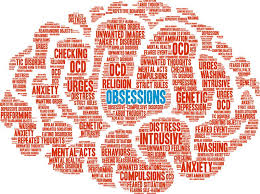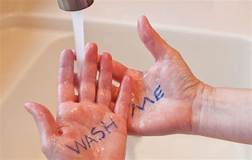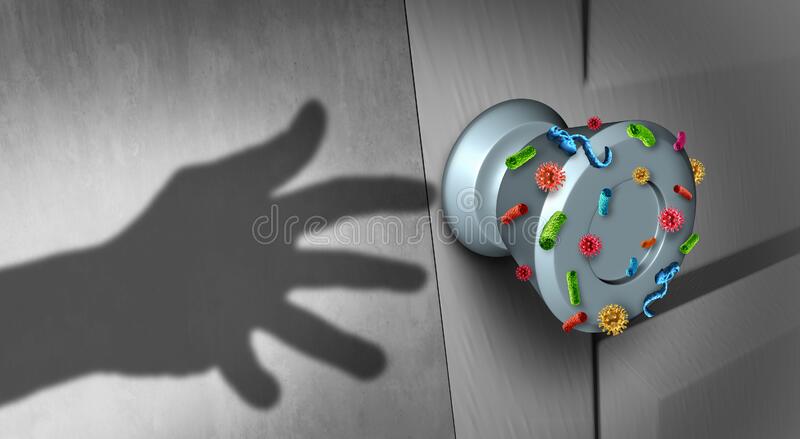Do you ever feel like everything around you is dirty and contaminated? If so, you might be experiencing contamination OCD. This type of OCD is characterized by the fear of being dirty or contaminated. People with contamination OCD often have intrusive thoughts about germs and bacteria and may also feel the need to constantly clean themselves or their surroundings. In this blog post, we will discuss the symptoms, causes, and also the available treatment options for contamination OCD.
Contents
What Is Contamination OCD?

Contamination OCD is a type of OCD that is characterized by the fear of being dirty or contaminated. People with this condition often have intrusive thoughts about germs and bacteria and may also feel the need to constantly clean themselves or their surroundings. People with contamination OCD may also avoid places or objects that they perceive to be contaminated.
Examples Of Contamination OCD
Here are some examples of contamination OCD:
- Constantly washing your hands because you feel like they are dirty and contaminated.
- Avoiding touching door handles, doorknobs, or anything else that might be contaminated.
- Avoiding shaking hands with people because you fear that you will contaminate them.
- Wearing gloves or a mask when you leave the house to avoid contaminating yourself.
- Cleaning your house obsessively in an attempt to get rid of all the germs and bacteria.
- Avoiding going in public places with a prominent presence of germs (example: public toilets)
- Using excessive amounts of hand sanitizer.
- Repeatedly taking showers.
- Wiping/dusting surfaces or objects.
Compulsions

People with contamination OCD often engage in compulsive behaviors in an attempt to reduce their anxiety. They will indulge in repetitive physical/mental compulsive behaviors to ease their anxiety around the fear of contamination. These may also have an imposition on others as people with this type of OCD may also constantly be suspicious of others and make them do/say things to ease their anxieties. This can also prove to be burdensome and bothering for others around them.
Symptoms Of Contamination OCD
Symptoms of contamination OCD can include:
- Intrusive thoughts about germs and bacteria
- Fear of contracting a disease or illness
- Excessive hand washing or showering
- Avoidance of public places
- Afraid of being sneezed/coughed on
- Excessively researching the causes and contraction of serious diseases like HIV, cancer, etc.
- Compulsive cleaning of oneself or one’s surroundings
What Causes Contamination OCD?

The exact cause of contamination OCD is not known, but it is believed to be a combination of genetic and environmental factors. Some research suggests that people with this condition may have a higher level of activity in the part of the brain that is responsible for fear and anxiety. Some researchers also say that people with this condition may have an overactive immune system which causes them to be more sensitive to germs and bacteria. There is no single cause of contamination OCD; rather, it is thought to develop from a combination of genetic and environmental factors. For example, people who have a family history of OCD or other anxiety disorders may be more likely to develop this condition. Additionally, stressful life events (such as the death of a loved one or a divorce) can trigger the onset of OCD.
Side Effects Of Contamination OCD
The side effects can be significantly impactful in a lot of negative ways. These consequences may include:
- social isolation
- difficulties in concentration
- reduced time management
- poor communication skills
- raised levels of suspicion/uncertainty
- low tolerance levels
- irritability
- paranoia
Treatment Options
There are several treatment options available for people with contamination OCD. These include:
Cognitive-behavioral therapy: This type of therapy can help people identify and change the thoughts and also behaviors that contribute to their OCD.
Exposure and response prevention: This treatment involves exposing oneself to the things that trigger OCD, without engaging in compulsive behaviors.
Medication: Some people with OCD may benefit from taking medication, such as antidepressants or anti-anxiety medications.
If you think you might have contamination OCD, it’s important to seek professional help. Treatment can provide relief from symptoms and help you live. The team of therapists available at Mantra Care provides effective and affordable mental health services
Conclusion
In conclusion, OCD is a mental disorder that can be very debilitating if left untreated. It’s important to seek professional help if you think you might have OCD. There are several effective treatment options available, and with the right help, you can live a healthy and fulfilling life.
If you are looking for affordable Online OCD Counseling MantraCare can help: Book a trial OCD therapy session


